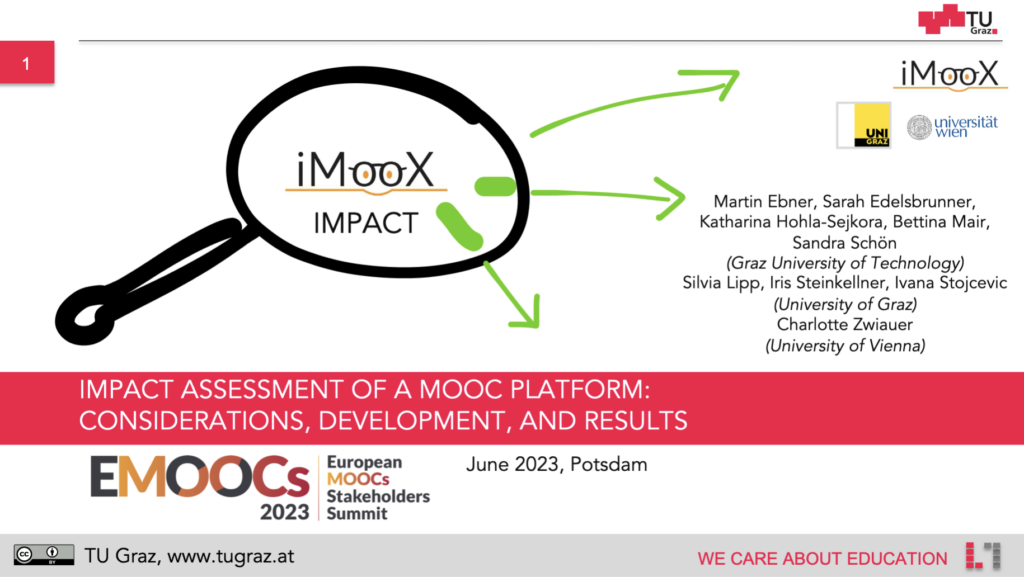Der mittlerweile schon dritte OER-Impact-Report der TU Graz wurde veröffentlicht und zeigt die Verbreitung von OER:
Der dritte OER-Bericht der TU Graz gibt einen Überblick über die Entwicklungen im Bereich Offene Bildungsressourcen (OER) im Zeitraum 10/2023 bis 09/2024. Die TU Graz baut ihre Aktivitäten in diesem Bereich weiter aus und nimmt sowohl national als auch international eine Vorreiterrolle ein. Ein besonderer Fokus liegt auf quantitativen Entwicklungen im OER-Bereich, z.B. zur Entwicklung von Weiterbildungsangeboten, des OER-Repositorium oder auch der Entwicklung der nationalen MOOC-Plattform iMooX.at die von der TU Graz betrieben wird. Zudem wird von Befragungen von OER-Lehrenden an der TU Graz berichtet und Auswertungen einer Befragung von Studienanfänger:innen zu OER und Open Source präsentiert. Im internationalen Kontext engagiert sich die TU Graz in der europäischen Universitätsallianz Unite!, in deren Rahmen unter anderem der multilinguale MOOC „Unite! OER Courses“ entwickelt wurde. Zusätzlich wurde eine internationale Lehrveranstaltung zu OER konzipiert.

Der Bericht kann direkt hier im Repository abgerufen werden oder man findet ihn auch auf unserer Webseite zusammen mit den beiden voran gegangenen.

